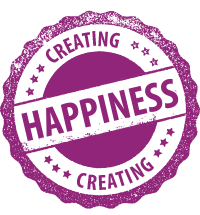Anger is a powerful energy. The energy itself is neither good nor bad, but it is a messenger that something is off and needs attention. It’s like an alarm system going off, saying, “Warning, warning, this is not working, adjustments are needed.” The required adjustments might be outward changes (like setting boundaries or ending a toxic relationship), or it might be inward changes (like changing my expectations or attitude).
Anger is a good catalyst, but a toxic state. As a catalyst, it can activate us to make healthy changes that make our lives better. However, when trapped in a state of anger, over time it will make our minds, hearts, and bodies sick. So the goal needs to be to understand the message of your anger, to act on it, and then let the anger go.
Often, forgiveness will play a big part in that process. If you want to learn more about how to implement forgiveness in order to be able to let go of anger, check out my blog on ”There Is No Way Around Choosing Forgiveness If You Want To Be Happy”.
Like all of us, I know what a powerful emotion anger can be and how easily it can take over. When angry, I have said and done things I am not proud of, and needed to apologize for.
It is important to understand that when we are angry, it’s the old part of our brain in charge, the Reptilian brain, who scans the world checking if there is a threat or not.
Once that part of the train is triggered, a chemical cocktail floods our brain, and research has shown that at that point we cannot access our Prefrontal cortex, which is our reasoning center. That’s why we say stupid things and do stupid things when we are angry, we literally cannot think.
The first, and only rule when you are angry is to stop, freeze, do and say nothing. The only goal at that moment is to return to a calm state of mind.
If you won’t be able to contain your reactivity and fear you will lash out, remove yourself from the situation. You need to buy yourself time, so you can calm down and allow your bloodstream to absorb all the “anger chemicals” (e.g.: Cortisol, Adrenalin, etc.) that have been released. So you will again be able to connect to your thinking self.
Once removed from the situation, it will be important to not get stuck in blaming, name-calling etc. If you treat yourself to a time out and focus all the time on what a “flippin’ ***hole” the other person is, you will return to the situation just as mad as you left it.
This is the time for big-picture thinking. Take some deep breaths, visualize yourself being in a safe place, and then become a curious observer, asking yourself, “What triggered me?”, “What am I thinking?”, “What am I feeling?”, “What is my impulse” and “What is my wise mind telling me to do”?
Half the battle is already won, once you have made the step of becoming an observer of your experience. As you do that, you can hold in your awareness that you are not your emotion, that there is a part of you outside your anger that can help you gain perspective and insight.
The insight of your wise mind will probably coincide with advice you might give your best friend in a situation like this. It could sound something like this, “The best way to deal with this situation, is to wait until I have calmed down and then address it calmly and assertively”.
Want to grow in this area? Experiment with this:
Next time you are angry and you fear that you will lash out, remember to “stop, freeze, do and say nothing” and if necessary remove yourself from the situation. The only goal at that point is to return to a calm state of mind so you can connect with your wise mind.
And once you have arrived at a calm state of mind, connected to your inner wisdom, and it has become clear to you what the next steps need to be, implement them swiftly. Communicate your message calmly and clearly, and act assertively. If you want some help communicating in an effective way, check out my blog on “How to Communicate Effectively To Increase Intimacy And Connection”.

This post is part of the blog series "Creating Happiness", your inspiration to promote positive change in your life.
Do you like Daniela's posts? Subscribe to her blog series:
ABOUT THE AUTHOR
Ms Daniela Beer-Becker, Psychologist
Daniela is a regular contributor to the Blake Psychology blog and author of the "Creating Happiness" series.
MORE POSTS IN THE SERIES
















